The FBI, along with the Cybersecurity and Infrastructure Security Agency (CISA), has recently highlighted a surge in cyber attacks targeting email services like Gmail. These warnings, issued in early 2025, aim to protect users from sophisticated threats that could compromise personal and financial information.Phishing attacks on Gmail have seen a 49% rise in evading filters since 2022, with 4.7% being AI-generated and 35% targeting individuals. The FBI advises not clicking on links in unsolicited emails, as attackers use tools like the Open Graph Spoofing Toolkit to create deceptive websites.
The FBI warns about scam calls where fraudsters impersonate Google support, using caller ID spoofing to appear legitimate. They urge users to hang up and verify through official channels, as legitimate companies do not make unsolicited calls.
Unexpected Connection to Ransomware
An unexpected detail is the link to Medusa ransomware, which uses phishing to gain access and has impacted over 300 victims. While not directly targeting Gmail, these tactics could involve email accounts, highlighting broader risks. For more details, visit the FBI’s Internet Crime Complaint Center at www.ic3.gov.
Comprehensive Analysis of FBI Warnings Related to Gmail
This section provides a detailed examination of the FBI’s warnings concerning Gmail, focusing on phishing attacks, fraudulent calls, and their connection to broader cyber threats like ransomware. The analysis is informed by recent advisories and reports, ensuring a thorough understanding for users seeking to protect their accounts.
Background on FBI Warnings
The FBI, in collaboration with the Cybersecurity and Infrastructure Security Agency (CISA), has issued multiple warnings to address escalating cyber threats targeting email services, including Gmail. These warnings are part of the broader #StopRansomware initiative, which aims to educate users and organizations about ransomware variants and phishing tactics. Given Gmail’s widespread use, with over 1.8 billion users, it has become a prime target for cybercriminals, prompting specific advisories.
Detailed Analysis of Phishing Attacks
Phishing attacks on Gmail have been identified as a significant concern, with the FBI highlighting their sophistication, particularly through AI-driven campaigns. According to a Forbes article dated February 10, 2025, titled “Most Sophisticated Gmail Attacks Ever—FBI Says: Do Not Click Anything” (Most Sophisticated Gmail Attacks Ever—FBI Says: Do Not Click Anything), these attacks have seen a 49% rise in evading email filters since the start of 2022.
The article notes that 4.7% of these threats are created using AI, and 35% target individual users, making them particularly dangerous. The FBI advises users not to click on links or download attachments in unsolicited emails, as these may lead to spoofed websites designed to steal sensitive information such as passwords, credit card numbers, and banking PINs.
The use of AI in phishing has lowered the barrier for attackers, with campaigns costing as little as $5, as mentioned in the same article. Malicious links are prevalent, leading in 70% of phishing cases, often requiring users to click on deceptive links. An unexpected detail is the emergence of the “Open Graph Spoofing Toolkit,” first sold for $2,500 on a Russian criminal forum in October 2024, which manipulates metadata to create highly deceptive links, exclusively sold to three buyers initially.
Google’s mitigation advice, as outlined in the article, includes using advanced security features to warn about dangerous messages, advising users not to download files, enter personal information, or respond to requests for private details. Users are encouraged to validate account security via the official Google account page without clicking on links from emails.
The following table summarizes key phishing statistics from the article:
| Statistic | Details |
|---|---|
| Rise in Phishing Attacks (Since 2022) | 49% increase in evading filters |
| AI-Generated Threats | 4.7% of total phishing attempts |
| Individual Targeting | 35% of AI-created threats target individuals |
| Cost of AI Campaigns | As low as $5 |
| Malicious Links Prevalence | Lead in 70% of phishing cases |
| Median Time to Fall for Phishing | Less than 60 seconds |
Fraudulent Phone Calls Targeting Gmail Users
Another facet of the FBI’s warnings involves fraudulent phone calls, where scammers impersonate Google or Gmail tech support. A Forbes article dated February 5, 2025, titled “Google Confirms Gmail Attacks—Do Not Ignore FBI Warning” (Google Confirms Gmail Attacks—Do Not Ignore FBI Warning), details that the FBI has responded to banking scam calls with a similar warning, stating, “Legitimate customer, security, or tech support companies will not initiate unsolicited contact with individuals.” This warning, sourced from the FBI’s 2022 PSA (FBI IC3 PSA 2022), emphasizes that users should never take such calls, as they are often part of AI-driven scams aiming to access accounts.
These calls typically use caller ID spoofing to appear legitimate, claiming issues with the Gmail account and urging users to provide recovery codes or other sensitive information. This is particularly relevant given reports of AI-driven scams impersonating Google support, as noted in an MLive.com article dated February 7, 2025, titled “Gmail users urged not to ignore FBI warnings as sophisticated AI-driven scams target users” (Gmail users urged not to ignore FBI warnings).
Connection to Medusa Ransomware
The FBI’s warnings also intersect with ransomware threats, particularly the Medusa ransomware group, which has been active since 2021 and has impacted over 300 victims by February 2025, as detailed in a CISA advisory titled “#StopRansomware: Medusa Ransomware” (#StopRansomware: Medusa Ransomware). This advisory, released on March 11, 2025, in partnership with the FBI and the Multi-State Information Sharing and Analysis Center (MS-ISAC), highlights that Medusa uses phishing campaigns and exploits unpatched software vulnerabilities to gain initial access. While the advisory does not explicitly mention Gmail, the use of phishing aligns with the tactics targeting email services, potentially including Gmail.
Medusa employs a double extortion model, encrypting data and threatening to release it publicly if ransoms are not paid. The advisory provides specific indicators of compromise (IOCs), such as email addresses used for ransom negotiation (e.g., key.medusa.serviceteam@protonmail.com), though these are explicitly stated as not associated with phishing activity. However, the initial access via phishing could involve targeting Gmail users, making it relevant to the broader warning.
The following table summarizes key details from the Medusa ransomware advisory:
| Category | Details |
|---|---|
| Release Date | March 11, 2025, as part of #StopRansomware effort |
| Victim Impact | Over 300 victims across critical infrastructure sectors by February 2025 |
| Operation Start | First identified in June 2021 |
| Ransom Model | Double extortion (encrypts data, threatens release) |
| Phishing Role | Used as initial access vector, alongside exploiting unpatched vulnerabilities |
| Mitigation Actions | Patch OS, software, firmware; segment networks; filter network traffic |
| Reporting Contacts | IC3: www.ic3.gov, Local FBI Field Office: www.fbi.gov/contact-us/field-offices, CISA: www.cisa.gov/report or report@cisa.gov, 1-844-Say-CISA (1-844-729-2472) |
Recommendations for Gmail Users
To protect against these threats, the FBI and Google recommend several measures:
- Enable Two-Factor Authentication (2FA): Add an extra layer of security to your Gmail account, as urged in a Forbes article dated March 15, 2025, titled “FBI Warning—Gmail, Outlook And VPN Users Need To Act Now” (FBI Warning—Gmail, Outlook And VPN Users Need To Act Now).
- Be Cautious with Emails: Avoid clicking links or downloading attachments from unknown or suspicious emails, and look for signs of phishing, such as spelling errors or unusual sender addresses.
- Verify Calls: Hang up on unsolicited calls claiming to be from Google support and verify through official channels, such as the Google account page.
- Keep Software Updated: Regularly update your operating system, browser, and software to patch vulnerabilities, as recommended in the Medusa advisory.
- Report Incidents: If you encounter phishing emails or scam calls, report them to the FBI’s Internet Crime Complaint Center (IC3) at www.ic3.gov.
Unexpected Insights
An unexpected detail is the role of the “Open Graph Spoofing Toolkit,” which manipulates metadata to create deceptive links, adding a new dimension to phishing attacks. This tool, first sold in October 2024, highlights the evolving tactics of cybercriminals, making it crucial for users to be vigilant beyond traditional email checks.
The InfoWire’s Part
The FBI’s warnings about Gmail are comprehensive, addressing both email phishing and phone scams, with a connection to ransomware threats like Medusa. Users are encouraged to adopt security best practices, including 2FA, cautious email handling, and reporting suspicious activity, to safeguard their accounts against these evolving threats.
Stay Tuned & Stay Connected!




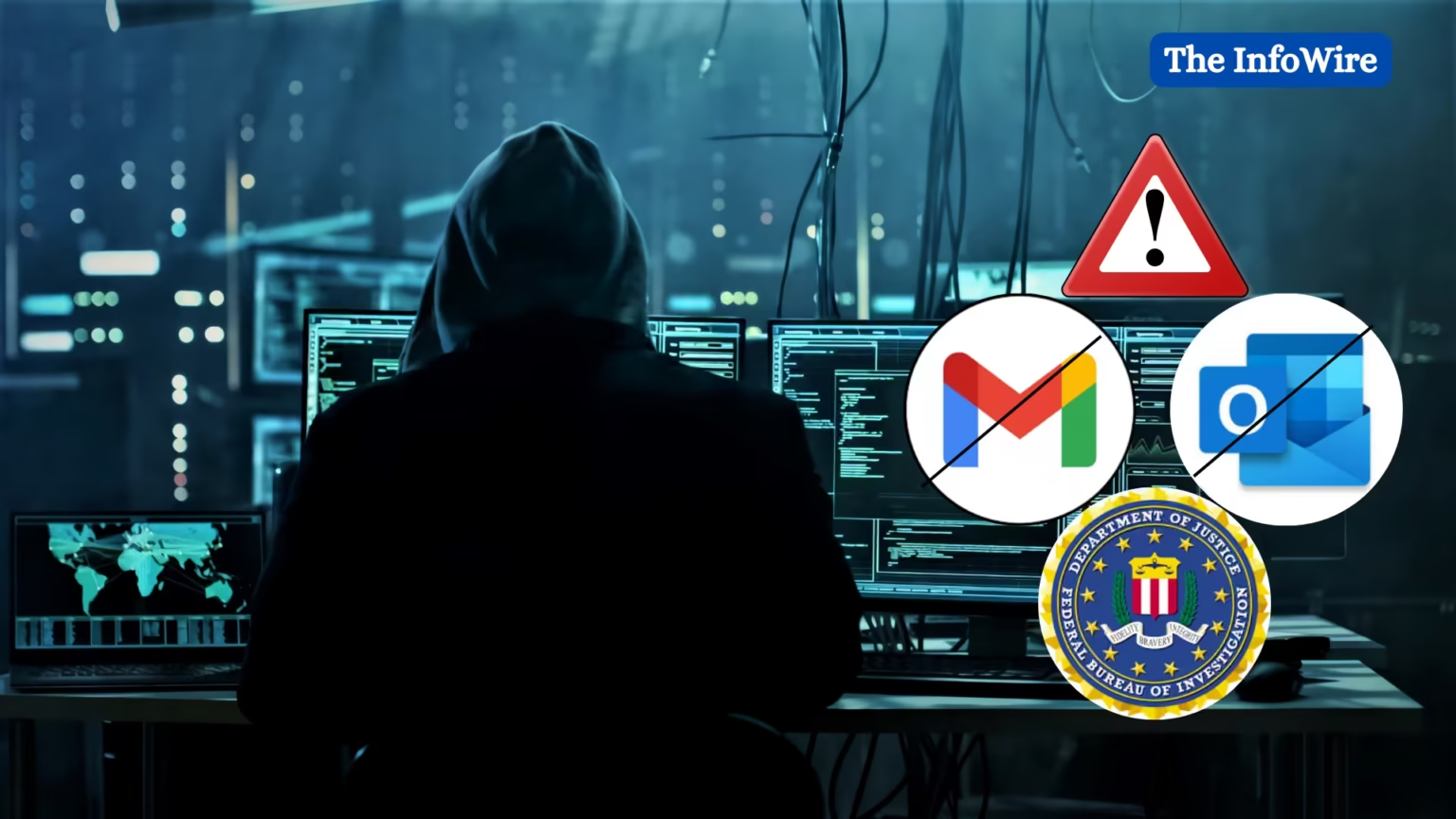

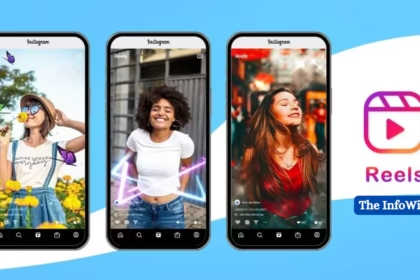


![OpenAI to Release New Open-Weight AI Language Model with Reasoning Capabilities [ 2025] 19 OpenAI to Release New Open-Weight AI Language Model](https://theinfowire.com/wp-content/uploads/2025/04/OpenAI-to-Release-New-Open-Weight-AI-Language-Model-420x280.avif)

